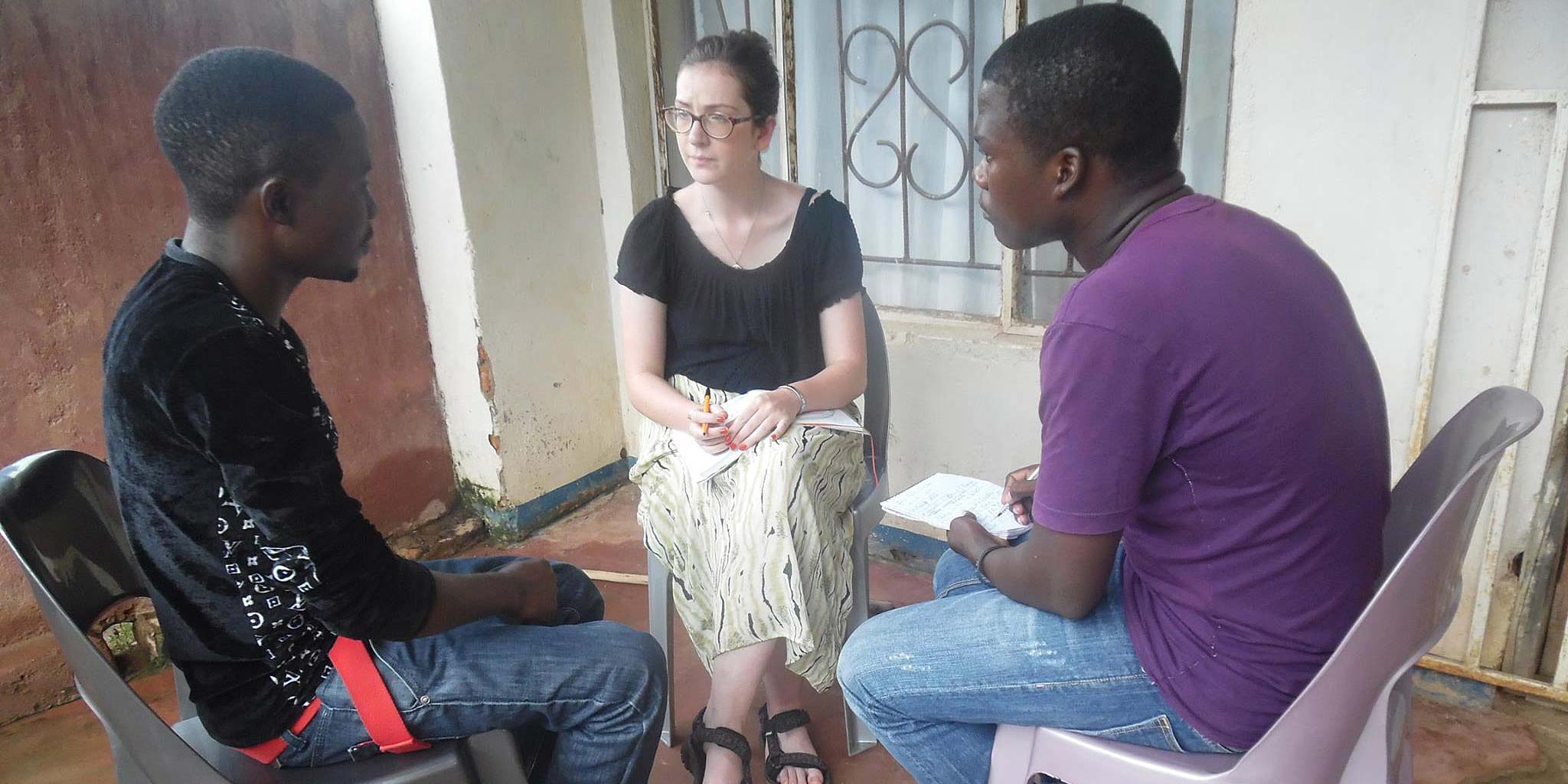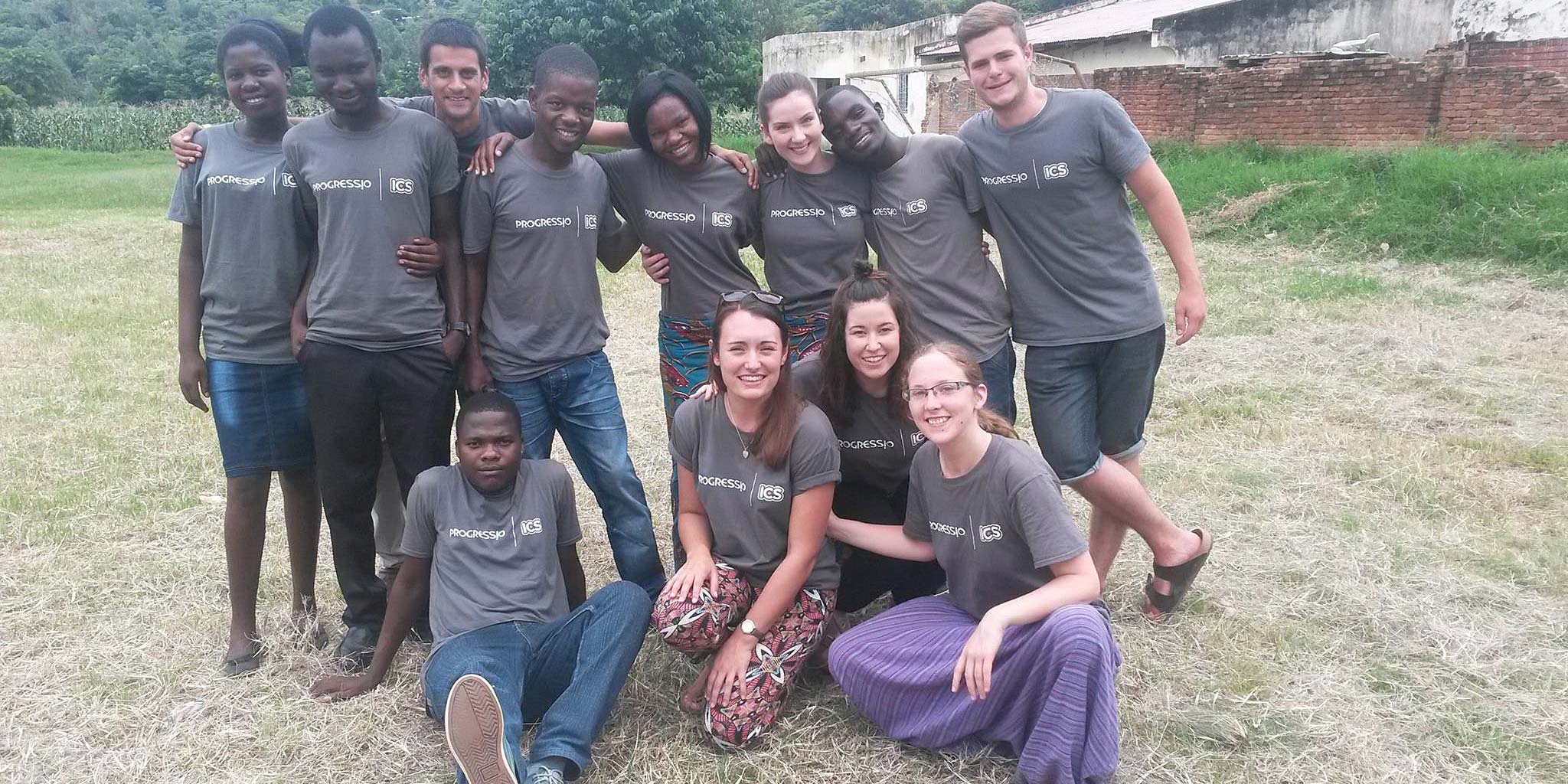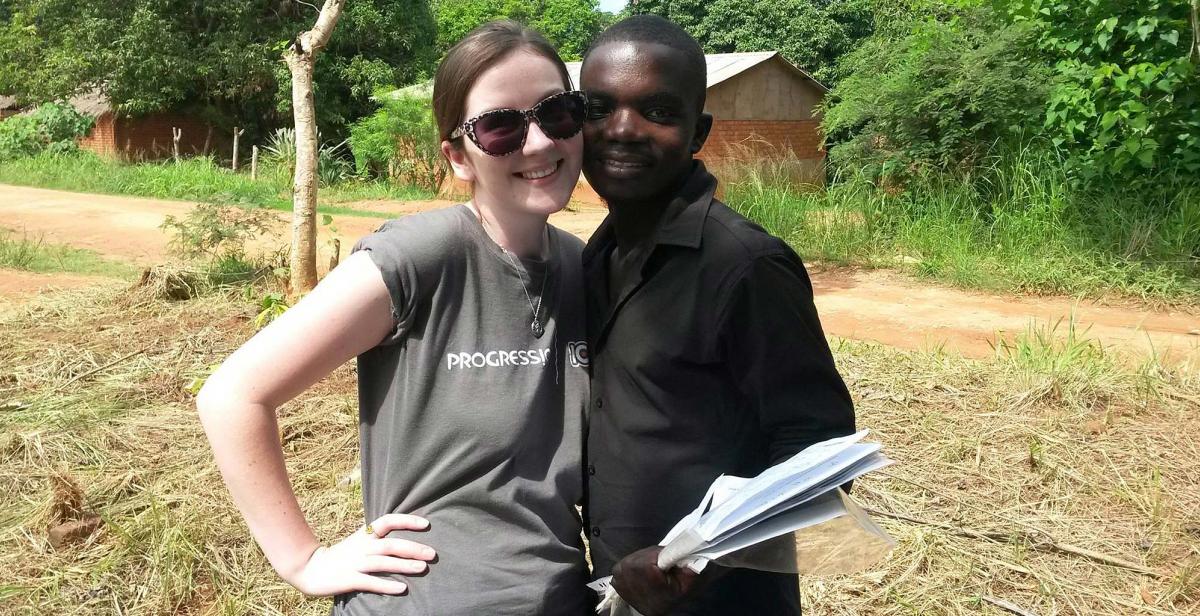The drive into Nkhata Bay and discoveries hereafter:
My first sights of Africa were exactly as I had seen in the photos, yet that only made the experience more surreal. Winding dirt roads and women shrouded in vibrancy, balancing baskets or buckets on their heads. Children topless and running to wave at us or men walking along the dust path, boxed into suits in the blistering sun. The tarmac had crumbled at the edges, immediately met by the earth. No paths, just road - the cusp between bitten and irregular - an obstacle for the bikes forced to the edges.
Nature has its way here: it is left to thrive. As we drive I notice the earth change colour: from the flat grey tone that brushed the land to this thick copper colour. The dust here is red too, similar to the dirty colour of drying blood. We know we are nearing the lake because we are hassled by more and more figures. They are shaking fish at our car. Some of them cooked, some just limp corpses, dangled by their lifeless fins. The water brings life, where there is life there must also be death. This time, the death is of the fish.
Fish is central to Nkhata Bay’s economy. As volunteers here a lot of our time is spent around fishing families. Fish is seen on every dinner table and every roadside stall, cooked and murky brown. Seen fresh caught on every other stall - neat in shiny piles like curled up silver chains. The lucky ones can still be glimpsed darting in the Bay’s waters. Yet there remains one hidden transaction in the fish’s journey. Something seen as unspeakable but something that has to be discussed. It is our driver, who tells us of the women.

They wander out when night comes; husbands still hard asleep, dresses on, puckered up, waiting: for the fishermen. The deed is done anywhere they can find: in the reeds and in the dark. In exchange, she receives a lump sum of fish. Not cold cash but warm, wet fish. Something about this makes me curl my lips down and wince. It is the crudity of it; it seems somehow more exploitative. Somehow more desperate. Less of a choice. Less of a skill or a service being given, more like exchanging body for bodies. Woman for fish. It is the baseness of weighing out her worth, one by one. Somehow more objectifying. Yet the longer I think of it, the less so it seems. Is it not exactly the same as prostitution anywhere in the world? Fish is just another currency, and a vital one at that. These women are not being forced physically by anyone. Is it not their choice?
Yes, free will plays a part here. However, this particular transaction is truly a reflection of the opportunities open to males and their female counterparts. Men fish. Women sell whatever they can. Despite their relentless ingenuity, fighting for business on little market stalls-women here are still struggling. Despite all their strength, hacking into tough earth, barefoot, each heavy hit fast and precise, it still is not enough. Some farmers only grow food enough to feed themselves. Even this relies upon rainfall so people in poverty can be left with no options. Malawi is 39% below the poverty line and with no state benefits; people everywhere have to fight for an income. This is why, when contemplating the argument of consent, the conclusion must always be very different to that of England. Here, there is often no other option.

When I was first plunged into the culture of Malawi, it seemed as if I had gone back in time. To a time when women were explicitly told what to wear-unlike that façade of freedom that sneers behind backs. To a time where I am explicitly told not to travel alone, what dresses to wear, unlike the sly way ‘my fault’ is implied in the UK. To a time at least where there are more pressing problems to be disputed than dress code. Not that any feminist feat is any less important than another. Quite the opposite in fact: that they are all intertwined. Women are united in our struggles, however varied, because they all stem from the same strain of oppression.
Surprisingly, my behaviour was increasingly flexible to these patriarchal measures when I was the one facing shame for wearing anything above the knee. This fear of being judged or isolated from the crowd catalysed a powerful appreciation for the Suffragettes. Imprisoned and force fed, stripped of even their ability to choose suicide, for a vote that is so easily taken for granted. Their bravery astounded me. I could understand why the women here conformed because I was conforming too. In similar ways I conform at home: removing body hair (something that women are not expected to do here at all) or making sure I wear makeup for an interview. Despite all the differences, there are the same fights going on all over the world, if at different rates. And the more I thought about it, the more similar these two sides of the globe seemed to be.
Written by ICS volunteer Roseanna Anderson



